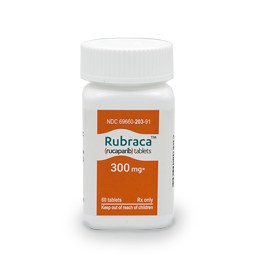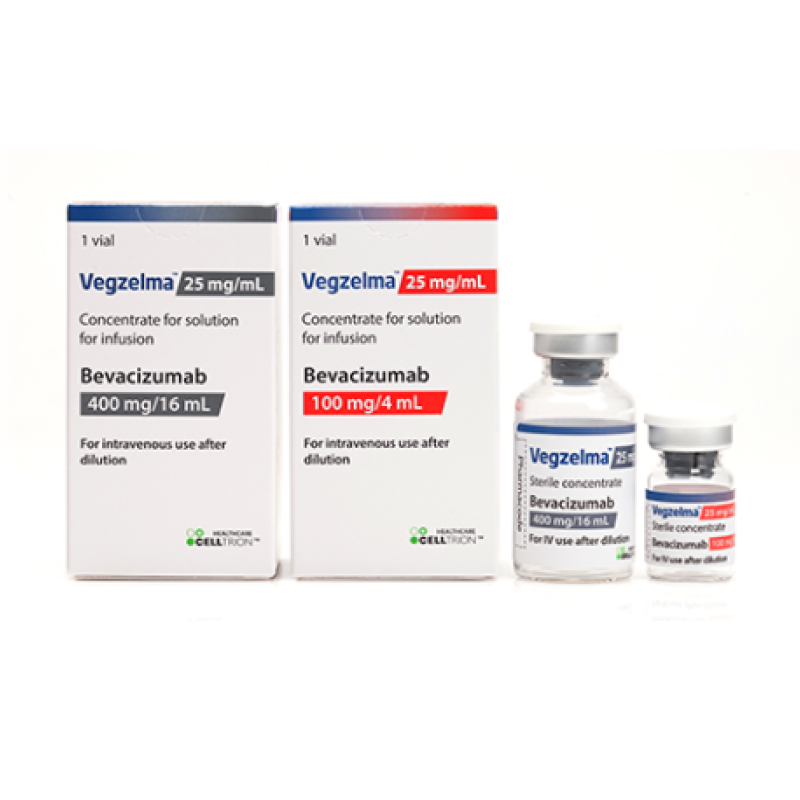Rubraca (rucaparib) vs Vegzelma (bevacizumab-adcd)
Rubraca (rucaparib) vs Vegzelma (bevacizumab-adcd)
Rubraca (rucaparib) is a small molecule inhibitor of the PARP enzyme, primarily used in the treatment of certain types of ovarian cancer, fallopian tube cancer, and primary peritoneal cancer in patients who have received previous chemotherapy and are associated with specific gene mutations (BRCA). Vegzelma (bevacizumab-adcd) is a biosimilar to Avastin (bevacizumab), which is a monoclonal antibody that inhibits vascular endothelial growth factor (VEGF), used to treat various types of cancers, including colorectal, lung, glioblastoma, kidney, and ovarian cancers, by preventing the growth of blood vessels that feed tumors. The choice between Rubraca and Vegzelma would depend on the specific type of cancer, its genetic profile, previous treatments, and the overall health of the patient, and should be made in consultation with a healthcare professional who can evaluate the individual's unique circumstances.
Difference between Rubraca and Vegzelma
| Metric | Rubraca (rucaparib) | Vegzelma (bevacizumab-adcd) |
|---|---|---|
| Generic name | Rucaparib | Bevacizumab-adcd |
| Indications | Ovarian cancer, fallopian tube cancer, primary peritoneal cancer | Metastatic colorectal cancer, non-squamous non-small cell lung cancer, glioblastoma, metastatic renal cell carcinoma, cervical cancer, ovarian cancer, fallopian tube cancer, primary peritoneal cancer |
| Mechanism of action | Poly (ADP-ribose) polymerase inhibitor | Monoclonal antibody that inhibits angiogenesis by binding to vascular endothelial growth factor A (VEGF-A) |
| Brand names | Rubraca | Vegzelma |
| Administrative route | Oral | Intravenous |
| Side effects | Nausea, fatigue, vomiting, anemia, dysgeusia, constipation, decreased appetite, diarrhea, thrombocytopenia, elevated liver enzymes | Hypertension, fatigue, diarrhea, decreased appetite, urinary tract infection, abdominal pain, headache, proteinuria, taste alteration, dry skin |
| Contraindications | Hypersensitivity to rucaparib or any component of the formulation | Hypersensitivity to bevacizumab, bevacizumab-adcd, or any component of the formulation; gastrointestinal perforation; recent surgery; serious hemorrhage |
| Drug class | PARP inhibitor | Monoclonal antibody, anti-VEGF |
| Manufacturer | Clovis Oncology | Celltrion Healthcare |
Efficacy
Efficacy of Rubraca (rucaparib) in Gynaecological Cancer
Rubraca (rucaparib) is a poly (ADP-ribose) polymerase (PARP) inhibitor used for the treatment of certain types of gynecological cancers, specifically ovarian cancer, fallopian tube cancer, and primary peritoneal cancer. It has shown efficacy in patients with deleterious BRCA mutation (germline and/or somatic)-associated epithelial ovarian, fallopian tube, or primary peritoneal cancer who have been treated with two or more chemotherapies. Rucaparib has been approved by the FDA for this indication based on studies that demonstrated significant improvement in progression-free survival (PFS) compared to placebo. The ARIEL3 clinical trial, for instance, showed that rucaparib significantly improved median PFS in patients with recurrent ovarian cancer who were in a complete or partial response to platinum-based chemotherapy.
Efficacy of Vegzelma (bevacizumab-adcd) in Gynaecological Cancer
Vegzelma (bevacizumab-adcd) is a biosimilar to the original bevacizumab product, which is a monoclonal antibody targeting the vascular endothelial growth factor (VEGF). Bevacizumab, in combination with chemotherapy, is used for treating various types of cancers, including gynecological cancers such as cervical and ovarian cancer. In the context of ovarian cancer, bevacizumab has been shown to improve PFS when used in combination with standard chemotherapy. The GOG-0218 and ICON7 trials demonstrated that the addition of bevacizumab to chemotherapy followed by maintenance bevacizumab significantly improved PFS in women with newly diagnosed ovarian cancer. Similarly, in recurrent cervical cancer, the addition of bevacizumab to chemotherapy has been shown to improve overall survival.
It is important to note that the efficacy of these medications can vary based on individual patient factors, including the specific type and stage of cancer, previous treatments, and genetic markers. The safety and efficacy of rucaparib and bevacizumab-adcd have been established through clinical trials, but their use should be tailored to each patient's unique clinical situation. As with any medication, the potential benefits must be weighed against the possible side effects, and treatment decisions should be made in consultation with a healthcare professional who specializes in cancer care.
For healthcare providers considering these medications for their patients, it is crucial to stay informed about the latest clinical guidelines and research findings. As the landscape of cancer treatment continues to evolve with new evidence and emerging therapies, the role of medications like Rubraca and Vegzelma in the management of gynecological cancers will likely be refined further, offering hope for improved outcomes for patients affected by these diseases.
Regulatory Agency Approvals
Rubraca
-
European Medical Agency (EMA), European Union

-
Food and Drug Administration (FDA), USA

Vegzelma
-
European Medical Agency (EMA), European Union

-
Food and Drug Administration (FDA), USA

Access Rubraca or Vegzelma today
If Rubraca or Vegzelma are not approved or available in your country (e.g. due to supply issues), you can access them via Everyone.org.
How it works

Make an enquiry
Choose the medicine you want to buy, answer a couple of questions, and upload your prescription to speed things up. We’ll get back to you within 24 hours.


Make an enquiry
Choose the medicine you want to buy, answer a couple of questions, and upload your prescription to speed things up. We’ll get back to you within 24 hours.


Breeze through the paperwork
We'll guide you through the required documents for importing unapproved medicine, ensuring you have all the necessary information.


Get a personalized quote
We’ll prepare a quote for you, including medicine costs and any shipping, administrative, or import fees that may apply.


Receive your medicine
Accept the quote and we’ll handle the rest - sourcing and safely delivering your medicine.

Some text on this page has been automatically generated. Speak to your physician before you start a new treatment or medication.
Let's talk
If you have any questions, call us or send us a message through WhatsApp or email:
Contact us




